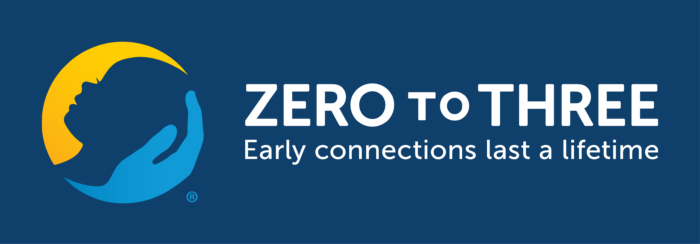
About Us
We envision a future in which states and communities have a comprehensive early childhood developmental health system that supports all families with young children to receive the services they need to flourish.
Many families face considerable obstacles in receiving the services they need to give their children a good start in life. Early childhood developmental health systems play a critical role in helping families receive care by bringing together maternal and child health, early care and education, child welfare, and other human services and family support programs. We focus on building early childhood systems to improve and strengthen the health and well-being of babies and toddlers. Scroll to learn more about our mission, objectives, technical assistance recipients, partners, and funding.
Our Mission
We work to increase the implementation and evaluation of comprehensive early childhood developmental health systems strategies among states and communities and to expand the integration of high-quality, early developmental health and family well-being services into pediatric settings.

Center Objectives
We aim to translate early childhood systems-building data into comprehensive strategies that impact the health and well-being of babies, toddlers, and their families. The Center will advance statewide systems of comprehensive early childhood development (ECD) promotion, screenings, and interventions that improve outcomes for young children and their families.
Strengthen state ECD systems data by examining existing systems-building research, identifying gaps, and exploring what questions need to be answered. Efforts will result in comprehensive recommendations for early childhood developmental health systems-building approaches, including the development of systems-building models.
Accelerate ECD systems development by providing direct technical assistance and support focused on systems implementation and evaluation to state-level Implementation Sites and disseminating resources that can be used nationwide.
Increase systems-building skills and the number of early childhood and health system leaders across the country by providing universal and specialized technical assistance opportunities that help ECD professionals build, implement, and evaluate their systems approaches.
Advance the delivery of high-quality ECD promotion and support services in pediatric settings by providing national leadership, technical assistance, and coordination in support of the Transforming Pediatrics for Early Childhood (TPEC) program. In coordination with the Maternal Child Health Bureau and the Bureau of Primary Health Care, we also provide technical assistance to community health centers.
Who We Work With
The Center offers universal and specialized technical assistance to early childhood and health system leaders and professionals to increase their systems-building skills. We also provide direct technical assistance and support to state, territory, community, and tribal teams to serve young children and their families, including:
- Transforming Pediatrics for Early Childhood (TPEC) Resource Hubs to expand the integration of ECD services into pediatric settings. Read more about the objectives of the TPEC program and Resource Hubs with our spotlight fact sheet.
- Implementation Sites to advance community building for early childhood systems-building efforts. Each team includes representatives across sectors, such as state agencies, systems-building coalitions, and family-support and community-based organizations. Read more about the Implementation Sites here.
- Community health centers funded by the Bureau of Primary Health Care to improve developmental outcomes for children ages 0-5 through increased screening, referral, and follow-up services. This grant concluded August 31, 2025.
Explore our interactive map to learn more about the community health centers, Transforming Pediatrics for Early Childhood (TPEC) Resource Hubs, and Implementation Sites we work with. Click on a location dot for more information about a team; numbered location dots zoom in to multiple teams within an area.
- All
- Community Health Center
- TPEC Resource Hub
- Implementation Site
Center Partners
ZERO TO THREE leads the ECDHS: Evidence to Impact Center in partnership with several of the nation’s top early childhood and health system organizations.

ZERO TO THREE
ZERO TO THREE ensures that all babies and toddlers have a strong start in life. Since 1977, ZERO TO THREE has translated expertise in the science of early childhood development into pioneering programs, field-leading training and resources, and responsive policy solutions. As a member-based organization, ZERO TO THREE provides a vibrant, connected community for professionals in disciplines focused on child development who are committed to advancing their knowledge and skills.

American Academy of Pediatrics
The American Academy of Pediatrics (AAP) is an organization of 67,000 pediatricians committed to the optimal physical, mental, and social health and well-being for all infants, children, adolescents, and young adults. AAP equips pediatricians and others who care for children with the latest research, policies, and education.

Help Me Grow National Center
The Help Me Grow National Center, a program of the Office for Community Child Health at Connecticut Children’s, leads a National Affiliate Network of states and communities dedicated to ensuring that early childhood systems maximize the potential of all children. The National Center serves as a national organizing entity to support the implementation of the Help Me Grow Model, which is the only national evidence-based early childhood system model in the country.

Family Voices
Family Voices is a national family-led organization of families and friends of children and youth with special health care needs (CYSHCN) and disabilities. The organization connects a network of family organizations across the United States that provide support to families of CYSHCN. Family Voices promotes partnership with families at all levels of health care – individual and policy decision-making levels – in order to improve health care services and policies for children.

James Bell Associates
James Bell Associates (JBA) improves the lives of children, families, and communities by conducting independent evaluations and providing actionable, useful findings to advance policy and practice. JBA also builds the capacity of others to conduct their own evaluations, make data-driven decisions, and improve performance. Their multidisciplinary team offers specialized knowledge and a flexible approach tailored to clients’ needs and goals.

Thrive Center for Children, Families, and Communities at Georgetown University
The Thrive Center for Children, Families, and Communities is dedicated to transforming policies, practices, and perspectives through community and clinical service, applied research and evaluation, technical assistance, and workforce development and training. Its mission is to rapidly advance systems of care and support that enable children, families, and communities to thrive.
Funding Acknowledgment
The Early Childhood Developmental Health Systems (ECDHS): Evidence to Impact Center was made possible through the support of the Health Resources and Services Administration (HRSA) of the U.S. Department of Health and Human Services (HHS) as part of an award totaling $4,740,000 with 0% financed from non-governmental sources. The contents are those of the authors and do not necessarily represent the official views of, nor an endorsement by, HRSA, HHS, or the U.S. Government. For more information, please visit HRSA.gov.